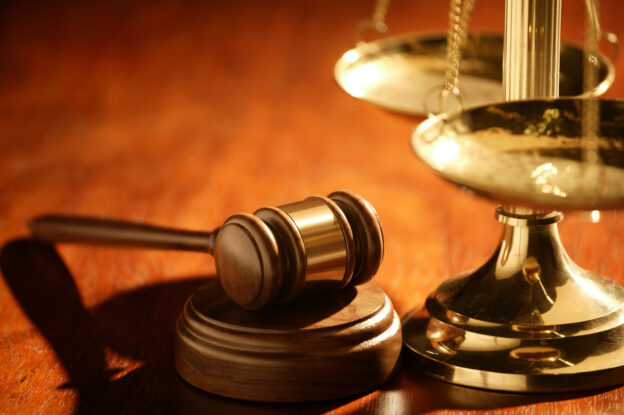In April, the Supreme Court sent a list of proposed amendments to Congress that amend the Federal Rules of Evidence. Absent action by Congress, the rules go into effect December 1, 2023. The proposed amendments affect Rules 106, 615 and, relevant to this article, 702.
Rule 702 addresses testimony by an expert witness. The proposed rule reads as follows (new material is underlined; matters omitted are lined through):
A witness who is qualified as an expert by knowledge, skill, experience, training, or education may testify in the form of an opinion or otherwise if the proponent demonstrates to the court that it is more likely than not that:
(a) the expert’s scientific, technical, or other specialized knowledge will help the trier of fact to understand the evidence or to determine a fact in issue;
(b) the testimony is based on sufficient facts or data;
(c) the testimony is the product of reliable principles and methods; and
(d) the expert has reliably applied expert’s opinion reflects a reliable application of the principles and methods to the facts of the case.
The proposed amended seeks to clarify how a judge should view his or her gatekeeping role without substantively changing the rule. Assuming Congress adopts the proposed rule, the proposal amends the rule in two ways.
First, it clarifies that a court should not admit expert testimony unless the proponent demonstrates that it is “more likely than not” that the proffered testimony meets Rule 702’s admissibility requirements. The rules committee recommended the change because many courts hold that the critical question of the sufficiency of the basis for an expert’s opinions goes to the weight of the testimony, not its admissibility. Thus, to be admissible in the future, the proponent of expert testimony must demonstrate, consistent with Rule 104(a) and case law interpreting Rule 104(a), that the testimony meets admissibility requirements – i.e., meets a preponderance of the evidence standard.
Consider, for example, a situation where the proposed expert has not read every single study related to his opinion. So long as a court finds that it is more likely than not that the opinion is admissible, any attack by the opponent based on the expert not reviewing additional studies will go to the weight of the evidence, not its admissibility.
By way of further explanation, where experts disagree by coming to different conclusions based on the same set of facts, the proposed rule does not require the court to exclude either side’s experts. This is so because proponents do not need to demonstrate that their expert is correct, only that his or her expert’s opinions are reliable. It remains up to the jury to decide disputed questions of fact and, by deciding the facts, a jury can decide which side’s experts to credit.
The second change to Rule 702 is to subparagraph (d). The proposed change to Rule 702(d) has special application to forensic experts. According to the rules committee, “[f]orensic experts should avoid assertions of absolute or one hundred percent certainty – or to a reasonable degree of scientific certainty – if the methodology is subjective and thus potentially subject to error.” A judge should, where possible, receive an estimate of the known or potential error rate of the forensic expert’s methodology based, where appropriate, on studies that reflect how often the expert’s methodology produces accurate results. In addition, an expert’s inferences must be limited to those that can reasonably be drawn from a reliable application of the expert’s methodology. In short, experts should not assert a degree of confidence in their opinions that is not derived from sufficient facts or data and a reliable methodology.
As stated in the commentary to the proposed changes, however, where the substantive law requires that an expert’s opinions to be stated to a particular degree of certainty, the proposed amendment does not bar such testimony. This commentary is confusing at best and, thus, it remains to be seen how judges will apply the change to Rule 702(d).
Although the change to Rule 702 applies only to the federal rules of evidence, state courts that follow the federal rules are likely to adopt changes to their rules to be consistent with the federal rules. Thus, in light of the apparently imminent changes to F.R.E. 702, subrogation professionals contemplating the use of expert testimony should consider taking one or more of the following steps: 1) assess whether an expert’s methodology is used by other experts in the field and/or supported by publications; 2) evaluate the foundation of an expert’s opinions to determine whether the expert’s opinions are supported by sufficient case-specific facts or data; 3) evaluate the expert’s report to determine whether the data and/or facts relied on are exhaustive and sufficient to support the expert’s opinions; and 4) ensure that the expert can adequately articulate and explain his or her opinions to a jury.

